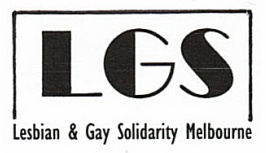




WORLD AIDS DAY 1ST DECEMBER

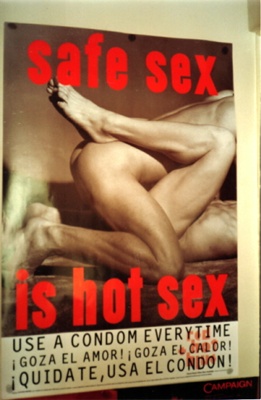




The report states:
"Health officials have reacted angrily to the latest prononuncement by the Catholic Church that condoms will not prevent the spread of HIV and AIDS.
The Vatican's absolute opposition to contraception is well documented but now it is arguing that particles of the AIDS virus can pass through tiny holes which are found in every condom.
But Professor Charles Gilks, who coordinates the World Health Organisation's treatment program for HIV, says there is no scientific evidence to support the Vatican's view.
'Although the AIDS virus, it is true, is very, very small and you can find small holes in condoms, the virus just doesn't pass through,' he said.
'We've looked very carefully - - - at the evidence around the effectiveness of condoms and we calculate the condoms are at least 90 per cent effective in preventing HIV transmission.'"

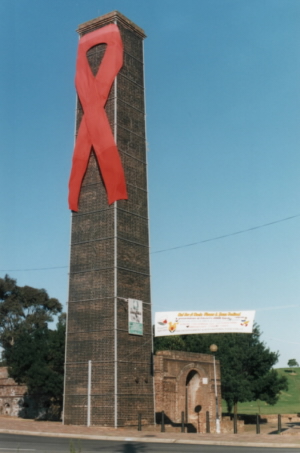

The Australian newspaper was the only paper to publish the letter, in censored form, on --October 2003, and the copy below, to The Age, will have the items censored by the Australian shown in italics
from: Kendall Lovett
So, there's a surplus of 7.5 billion in the Federal Government's 2002-2003 budget despite the cost of Australia's involvement in Iraq and the Solomons.
Well, Mr Treasurer, how about paying Australia's dues to the Global Fund to fight AIDS, Tuberculosis and Malaria?
Even if there's only 3.5 billion to play with, remind your boss (the PM) that Australia remains one of a small handful of donor countries that is yet to make a contribution (Andrew Hewett, executive Director Oxfam Community Aid Abroad, The Age, 29.9.03).
Kendall Lovett Preston 9471 4878

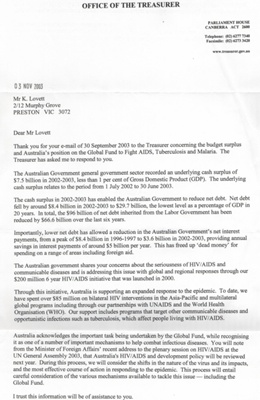
(Signed) Philip Gaetjens
Chief of Staff

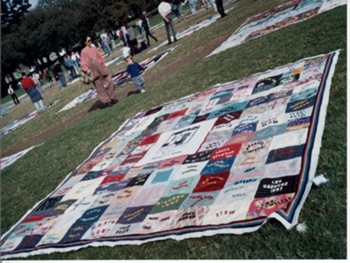


Photo by Kendall Lovett

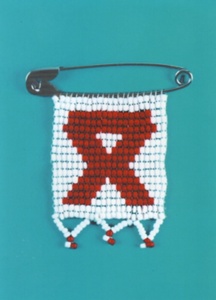
A caring response to AIDS
Wola Nani's email address: wolanani@wolanani.co.za

MONEY FOR AIDS DRUGS
NOT FOR WAR
The report states that Health Minister Tony Abbott has angered HIV/AIDS community groups by excluding them from the Government's top advisory panel on sexually transmitted diseases.
In the report a spokeswoman for Mr Abbott is quoted as saying that the list of committee members had not been finalised, but was "pretty representative" and included many health experts. "Being gay was not part of the selection criteria", she said.
The HIV/AIDS subcommittee includes Michael Kelly, a Jesuit priest who heads a Catholic church communications group, Church Resources. The report says that, when asked what health experience he had, Father Kelly answered: "Zero".
Now if this was happening in 1984, 20 years ago, when the AIDS epidemic was in its early stages around the world, and particularly in Australia, where the first few cases of the disease were emerging, one could perhaps respond to the above appointments and situation by saying, "Well, we don't know much about this, and we will have to feel our way, and we will try and co-opt people onto committees to help us to respond to what is emerging as a health crisis.
In the year 2004, this is an indefensible position, and Tony Abbott, a practising Catholic, is allowing his so-called religious affiliations to cloud his judgement and his responsibilities to people living with HIV/AIDS.
It is to be hoped that all the AIDS councils and all affiliated AIDS bodies around the country will protest at this outrageous behaviour by a politician who is out for his own self-aggrandisement, which is certainly against the so-called religious beliefs to which he aspires.
There have already been protests by some of the AIDS organisations and at least one person who has been appointed to the committee, and Lesbian and Gay Solidarity adds its voice to the protests. It is unacceptable in this day and age to have a minister in the federal government behaving in such a cavalier fashion. Being gay SHOULD be part of the selection criteria.

This letter was sent to the Sydney Star Observer on 19 April 2004 in response to a letter-writer who had accused those attacking "barebacking" as being "Safe Sex Police". We do not resile from our views relating to this activity.
Mannie De Saxe - Community Support Network (CSN) carer (retired) PO Box 1675 Preston South Vic 3072 Phone:(03)9471 4878
email: josken_at_zipworld_com_au web: http://www.zipworld.com.au/~josken
HIV infections have increased in Australia during the last few years. Reports indicate that venereal diseases such as syphilis are also on the rise at an alarming rate. These increases are in part because many gay men reject condom use. AIDS councils must take some responsibility for the failure of recent safe sex programmes. The AIDS Council of New South Wales (ACON) conducted community forums a few years ago to gauge community responses to changes they proposed, departing from their charter on HIV/AIDS issues. Those who chose to go to the forums aired our views and we were assured ACON would consider our concerns when formulating policy changes. We were ignored, ACON issued new policies and HIV/AIDS was removed from the front pages of the agenda. ACON feared loss of funding and was determined to prevent this. Now we are confronted by people writing letters to the gay papers (SSO 15 April 2004) saying people who criticise barebacking are “Safe Sex Police” and asking if this was gay Nazi Germany - appallingly insulting and devoid of reasoning. These people when - not if - they become infected with HIV - will expect medical and volunteer assistance, so that they remain well enough to continue unsafe behaviour. ACON has failed to get safe sex messages across. Irresponsible, thoughtless, reckless and selfish people who attack those criticising their barebacking lifestyle are in the same category as smokers who ignore “Smoking Kills” health warnings, then demand health care when required. Somewhere, sometime, we have to take responsibility for our actions.
Mannie De Saxe

The article below was published in The Age newspaper in Melbourne about 23 April 2004. It is an ongoing indictment of the South African government's handling of the biggest health crisis to confront that country.
ANOTHER COUNTRY
On April 26 1995, a year after South Africa's first democratic election and Nelson Mandela's ascension to power, I drove from Johannesburg to the village where I grew up. My mother still lives there. New Eersterus is a barren piece of land 45 minutes' drive north of the capital city, Pretoria. The first villagers were dumped there in the early 1960s when the apartheid regime decided to remove blacks from the racially mixed suburbs of Lady Selbourne and Eersterus. Throughout my childhood, New Eersterus never had running water or electricity. The houses were corrugated iron shacks that let in the wind in the bitterly cold winter months. The people of New Eersterus built the schools where I studied. They cleared their own roads and built their own brick houses from nothing. Between 1976 and 1995, the only government intervention in the village had been to round up all the teenage boys one winter night in 1986 and beat them up for alleged involvement with the ANC.
I arrived in the village at dusk. I was there to write a story for my newspaper, and I needed the night for my pictures. New Eersterus had been electrified. I spoke to my best friend's grandmother and took pictures of her under the bright lightbulb hanging outside her house. She told me about her pride and joy at finally being able, in her late 70s, to flick a switch and have light. But she spared most of her comments for a lecture on dignity. "We have always been animals, but now we are people," said Mosebo Makitla. "Mandela has made us people. He has given us the dignity we did not have under apartheid."
New Eersterus had never been a place one could associate with dignity. As a young boy, I remember sitting with a friend of mine and plotting our escape from the village. We looked around us at households headed by women because the men were working far away in the mines or had, like my father, abandoned their families. We looked at our brothers turning to crime because of unemployment, at our sisters and our contemporaries falling pregnant as young as 14 and 15. It was a place of low horizons and dead ends.
And then there was the physical infrastructure, or lack of it. In the schools, I remember being taught English at age 11 by a teacher who could not speak the language. I ruined my eyes reading American pulp fiction by candlelight. The dust and smoke from coal fires led to lung infections. In a patriarchal society, my sisters would come back from school and go to the local water-seller (a man who had put together enough money to sink a borehole) and carry water home on their heads.
New Eersterus today is not the first world, but it has come a long way. The electricity network is fairly reliable, some roads have been tarred, new schools have been built and a water supply was installed - even if it has been disrupted by poor workmanship and corruption. In the village nearby, government housing - modest though it is - is being provided.
The place where I grew up, where my mother still lives, is not a forgotten place any more. And it is not just in the poorest parts of South Africa where dignity is being restored. Black people like me, long denied opportunity by the apartheid government, are flowering in our hundreds of thousands. I am the editor of a Nigerian-owned newspaper that was founded essentially because Thabo Mbeki called for an African renaissance and initiated a plan (the New Partnership for Africa's Development) to make Africans cooperate and build the continent themselves.
We have, in the past 10 years, produced the first crop of black rand billionaires while millionaires are being made overnight. The races are coming closer and in schools, nightclubs, business and other walks of life, the dream of a non-racial, united and democratic South Africa is truly becoming a reality.
Yesterday morning, on the eve of our third democratic election, I walked round my neighbourhood park with my three-week-old daughter, Ayanda. Ten years ago I would have been an anomaly in this middle-class white suburb. Then the only blacks were nannies and gardeners. The nannies and gardeners are still there, but so are a sizeable handful of black home-owners. New black arrivals like me now agonise about not treating our domestic workers the way our mothers were treated as workers in these suburbs.
We live in a country where democracy has become so familiar that we look at the pictures of our first non-racial vote in 1994 and marvel. Those long queues, those people who slept at the polling stations before April 27 1994 - we do not have the same enthusiasm for democracy now. We are normalising; we could even be calling today's election "the apathetic election".
People like me now have access to debt to buy chunks of formerly whites-only business. But for those who do not want this, this new dispensation has provided opportunity. The hard economic numbers also speak well of Mandela and President Mbeki's rule. The budget deficit has dropped from 9.5% of gross domestic product in 1993 to just 1% last year. Total public-sector debt has decreased from 64% to less than 50%. South Africa is wiping out its foreign debt - incurred by the apartheid government - and inflation is down to 4%.
It is not simply a middle-class revolution: the numbers reflect the change experienced by those who still live in my mother's village and in other rural and poverty-stricken areas. The number of people with access to water has increased by nine million since 1994. More than 70% of households are now electrified, and nearly 1.9m houses have been built for the poor. Education is free and compulsory. Our democracy, meanwhile, is vibrant and robust. Twenty-six parties are on the ballot paper - even if the polls tell us that the ANC is going to win by more than 60%. We have dignity and we have hope. This is something we have never known and whose significance one cannot adequately express. One has to live without it to appreciate it.
Our neighbour Veronica left a son, a beautiful, clever, young boy who is my nephew's best friend. At the funeral he sat composed, a slightly dazed look in his eyes. But his plight is commonplace here. His grandmother's neighbour buried her daughter - who was also in the same primary school class as me - in 2002. She left three children. The story was the same throughout the village.
One of the richest men in the village, from a family which owns a string of funeral parlours, had just been buried after a long illness. Their biggest competitor was on his sick bed in the local hospital. Their businesses are the most profitable in the whole region. They have to stagger burials through the day on Saturdays and Sundays - traditional funeral days here - to accommodate the demand.
I asked after my childhood friends and acquaintances. I was told of death and long illnesses, and silence and stigma. And somehow Mbeki has managed to look the other way. The president's spokesman and a personal friend, Parks Mankahlana, died of Aids three years ago. He died writing articles defending Mbeki's stance that HIV does not lead to Aids. The health minister Manto Tshabalala-Msimang, who once told a Guardian reporter that South Africa has to buy arms instead of medicines because US president George W Bush might attack South Africa, continues to flirt with Aids dissidents and denialists. Tshabalala-Msimang entreats people to rely on a diet of beetroot, garlic, olive oil and orange juice to fight the virus.
It is a mad country, this. Our hearts remain hard when an HIV-positive mother from Alexandra township names her child Nevirapine (the drug that prevents mother-to-child transmission of HIV, and which the SA government is still dragging its feet in providing to pregnant mothers). In an address to the Rhodes Trust centenary reunion in Cape Town, the Anglican Archbishop Njongonkulu Ndungane said the Aids pandemic in SA was our "new holocaust". "I believe that many of us are equally guilty of inaction as millions succumb to the ravages of our new holocaust. Aids taints every facet of life, from national economies to a subculture of orphans in which it is normal for seven-year- olds to head households," he said.
According to the South African government there are 4.7 million people living and dying from Aids - a staggering 10% of the population. On April Fool's Day, dozens of HIV- positive people gathered at five designated hospitals in our richest province, Gauteng, to get free antiretroviral drugs provided by the provincial government.
The national government will be rolling out antiretroviral drugs to other provinces later in the year. By 2005, we have been told during this election campaign, South Africa will have the most comprehensive and expensive antiretroviral drug rollout programme in the world.
But if, in 1999, when Mbeki first publicly denied the link between HIV and Aids, he had not done so, how much faster would this country have moved towards an antiretroviral programme and a robust, clear and all-encompassing Aids education programme? How many young people would have taken Aids education more seriously if the highest office in the land had not, for five years, essentially denied that we are a dying people? I do not know. And I do not know how many lives that five-year lapse engaged in a stupid debate cost. As I go to vote today, I cannot stop thinking of the five million and of the tragedy we have allowed here, in this great country now living in the shadow of death.
· Justice Malala is the editor of the South African newspaper ThisDay.
Guardian Unlimited © Guardian Newspapers Limited 2004

Mannie De Saxe
2/12 Murphy Grove
Preston
Vic 3072
Phone:(03)9471 4878
email: josken_at_zipworld_com_au
web: http://www.zipworld.com.au/~josken
On 17 September 1985 Reagan, at a press conference, announces that he can understand why parents do not want their children “in school with these kids” who have “AIDS”. It was the first time he publicly uttered the word. (Kinsella - Covering the Plague, Rutgers 1989).
As for the Reagan AIDS budget (which set the scene for George W Bush's strings-attached AIDS expenditure in the 2000s) and spending on HIV research, maybe it would be a good idea to do a little research of one's own before springing into print. Two of the writers who did extensive research on the AIDS crisis in the 1980s and 1990s, Dennis Altman (1986) and Cindy Patton (1990), explain what Reagan's AIDS budget was and how it was delivered to the American public, and it reads very differently from how The Age letter-writer (10/06) explains it.
There is not enough space in a letter to make all the arguments, but it may well be rewarding to understand the implications of what one is saying before one says it!
Mannie De Saxe M.HSc. (HIV Studies).

The following letter was written to the South African Independent OnLine in response to an anonymous letter writer who was again trying to say that AIDS does not come from HIV.
Mannie De Saxe ( josken_at_zipworld_com_au ) wrote:
Letter Subject: Something doesn't make sense: response
Letter date: 2004-08-05 16:47:14
After over 20 years of the AIDS pandemic, it seems there are still people who are defending the indefensible, and even worse, haven't got the courage of their convictions to put their name on a letter to the editor.
The African continent has been hardest hit with AIDS, South Africa being one of the countries with the highest infection rates in the world.
Do these doubters believe people in South Africa are dying by just falling down and being dead of no visible cause?
Australia was hard hit by HIV/AIDS in the 1980s and 1990s, but education and a supportive health minister - something that South Africa sadly lacks - helped to bring the disease under control.
However, South-east Asia is now the area with the fastest growing rates of HIV infection in the world, with Thailand, India and China well on the road to a South African situation.
Reality is something which two of your correspondents don't seem to be able to live with - fantasies are all very well, but the deaths and infection rates continue to rise at alarming rates.
Wake up and do something about it - get educated about HIV/AIDS and educate others. Only then are you in a position to criticise others.
Revisionism never cured diseases!

TOPIC: Aids
Anonymous wrote:Nothing in this correspondent's letter indicates any scientific proof to support his statements or assertions
Surely, whether there is death or not, we cannot stop asking question as to the positive link between the deaths and the alleged cause. Merely pointing out that people are dying and that South Africa has the highest infection rate is useless information.
In fact, the last I heard is that our rate of infection was based on data taken from neo-natal clinics mainly in KZN where the bias is understandable.
No one is disputing that people are dying from something. What is being disputed is that the medication being used could actually be contributing to the deaths. Whether that is true or not, it need to be investigated.
You cannot merely close that loop of research, when the person who actually discovered HIV refuses to acknowledge the link between HIV and AIDS. He was smart enough to discover HIV, but we now believe he is not smart enough to link it to what is killing people?
I have trouble when a certain course of treatment seems to be religiously favoured over another, as if the drug makers are actually driving the treatment. Since when has treatment been driven by medication? Shouldn't medication assist in treatment, rather than direct treatment?
Disease is science and only with further research can this disease be defeated. However, the present course of prevention should continue until further analysis suggests a different course.

TOPIC: Aids
Mannie De Saxe ( josken_at_zipworld_com_au ) wrote:
Letter Subject: Something doesn't make sense: response to Anonymous
Letter date: 2004-08-10 11:52:07
I have problems with people who write letters to media but haven't got the courage of their convictions to sign their names.
Does this anonymous person have his/her scientific evidence to the contrary?
Australia is a country where the AIDS crisis was acute in the 1980s and 1990s. The medical experts in Australia did research into available treatments and found what helped and what didn't.
AZT was a stop-gap treatment at the beginning because there was nothing else.
I was a carer for people living with HIV/AIDS in the 1990s and experienced at first hand what was happening to people with HIV/AIDS and their responses to treatments.
"Anonymous" is trying to reinvent the wheel! What a waste of time and effort. Get stuck in to educating yourself and those around you and do something to help the millions of your fellow citizens who are infected with HIV and dying of AIDS!
Mannie De Saxe, Master of Health Sciences (HIV Studies)(University of Western Sydney, Nepean)

TOPIC: AIDS
Mannie De Saxe ( josken_at_zipworld_com_au ) wrote:
Letter Subject: AIDS - a different story
Letter date: 2004-08-20 11:02:08
A story carried on national radio in Australia on Monday 16 August 2004 certainly tells a different story from those your HIV/AIDS revisionist historians are trying to foist on a public treated like mushrooms by its government and particularly its health minister. As Alan Paton once wrote: "Cry the Beloved Country".
{PRIVATE "TYPE=PICT;ALT=ABC Online"}
ABC Online
The World Today - South African families devastated by HIV/AIDS
[This is the print version of story http://www.abc.net.au/worldtoday/content/2004/s1177479.htm]
The World Today - Monday, 16 August , 2004 12:46:00 Reporter: Sally Sara
ELEANOR HALL: To devastation of a different kind now, in South Africa where AIDS is turning the normal cycle of life on its head. This is a country, which has the largest HIV positive population in the world.
And that's forcing some wrenching changes particularly for older citizens, as our Africa Correspondent Sally Sara tells us in this letter from the township of Alexandra on the outskirts of Johannesburg.
SALLY SARA: Saturday in Alexandra is funeral day. Undertakers in white gloves and bad suits drive hearses through the narrow streets. Some of the cars have sirens because the traffic at the cemetery is so heavy.
Funeral services are held in tents outside the homes of the grieving families. The coloured marquees are put out in the middle of the street. Some have red and white stripes, some are blue. The houses are too small to fit all the mourners inside.
It has become a ritual. The grandmothers in Alexandra don't play bowls or bridge. They are members of burial societies.
Every month they put some money aside, ready for the next funeral. Each burial society has its own uniform. The grandmothers wear brightly coloured skirts and red berets. It's a hobby of necessity. The AIDS epidemic in South Africa has left the old to bury the young.
There's something painful and wrong about watching a grandparent say goodbye to a grandchild. Even the coffin looks small and out of proportion. Inside it was a little boy.
Bongani Mazibuko was ten years old. He was a serious, haunting kid with a skinny neck and big eyes. Bongani died in hospital a week ago. His grandma clutched his hand and stroked his head as AIDS took him away. His parents weren't there to mourn. AIDS took them too before he could remember them.
Bongani's classmates sang at the funeral. His best friend told of how they chased a rat in the classroom. In his best schoolboy English, he said Bongani was a jolly somebody.
The funeral made its way down the street. The ladies from the burial society sang and danced with their hands in the air. There was the clip clop of school shoes as the wounded kids held their procession. They held up photographs of Bongani and signs with warnings about AIDS.
Some small children clapped and pretended to march as they watched the mourners to go by. It was as if they thought it was a parade. They didn't seem to know that it was a farewell for a boy not much older than them.
For others, it was too much. One neighbour, a young man, was crouched over a beer bottle in the front yard. He was crying. By the time the mourners returned from the cemetery, he was passed out, lying in the sun.
But for Bongani's grandmother, there's no escape. She's now lost both her daughters and her grandson to AIDS. There's one more grandson to go. He's HIV positive too. His glands are already swollen and his grandma knows what happens next.
And that's the way AIDS visits families in South Africa. It takes the parents, then the oldest child and keeps going until the youngest eventually falls sick. The funeral tents are put up outside the same house, again and again.
Young families just disappear. It's become a routine. Saturday in Alexandra is funeral day.
This is Sally Sara for The World Today.
© 2004 Australian Broadcasting Corporation
Copyright information: http://abc.net.au/common/copyrigh.htm Privacy information: http://abc.net.au/privacy.htm

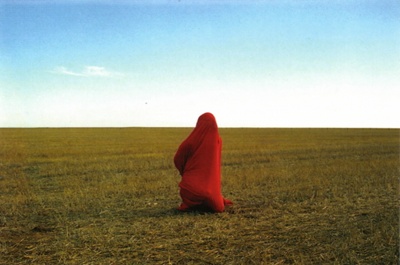
KAI is an artist that works in a variety of mediums, depending on the project's conception. He has practised safer sex without exception. This photo was created in response to a HIV= diagnosis.
(AVANT free postcard - 2005)
Artist's email: yourpositivestory@hotmail.com
Artist's web page: http://www.immaculateinfection.com

"All of the 97 Australian AIDS Memorial Quilts we have acquired are now on line and can be viewed here
Australian AIDS Memorial Quilts
The Museum's fabulous team of volunteers have also been documenting (as much as we can ) information on the individual panels and are up to Quilt 88 so by early next year (2014) the panel information will be up in detail.
I also developed an exhibition last year HIV & AIDS 30 years on: the Australian story
HIV and AIDS 30 years on: the Australian story




| Photos
of the Groves |